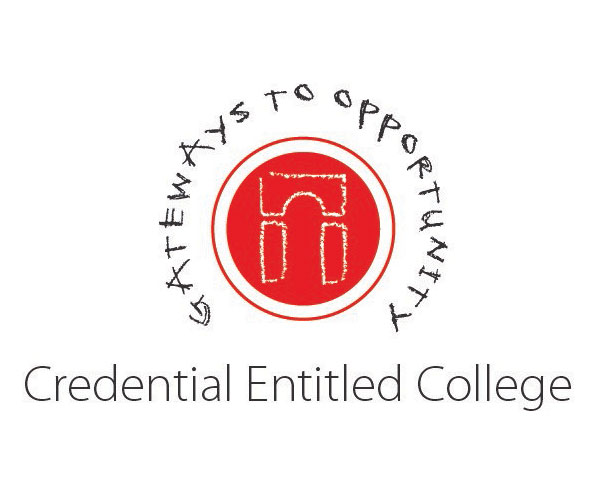Elmhurst University’s innovative program in educating young children prepares students to teach children from birth to grade 2.
Graduates will earn both an English as a Second Language (ESL) endorsement and an early childhood special education approval, making them highly marketable as teachers.
Program Highlights
- Students in the educating young children program begin their in-school clinical experiences early in their education, with close supervision and coordination from faculty. Courses are offered in term-length “blocks,” with each block devoted to a different developmental level.
- All candidates will earn the early childhood license with an early childhood special education approval and English as a Second Language (ESL) endorsement. Courses being applied toward licensure must earn grades of C- (1.7) or higher.
 All students graduating with a degree in early childhood education will be eligible to receive the Gateways to Opportunity Level 5 Credential in Early Childhood. Students may be eligible for the Level 5 Infant-Toddler Credential with appropriate coursework. Applications for these credentials must be made through the Gateways to Opportunities Program upon completion of the degree program.
All students graduating with a degree in early childhood education will be eligible to receive the Gateways to Opportunity Level 5 Credential in Early Childhood. Students may be eligible for the Level 5 Infant-Toddler Credential with appropriate coursework. Applications for these credentials must be made through the Gateways to Opportunities Program upon completion of the degree program.- The new program is fully aligned with the State of Illinois’ new licensure requirements.
Recommended Course Sequence
Fall Term
- ENG 105 Composition I
- Integrated Curriculum Requirements
Spring Term
- EDU 104 Cultural Foundations of Education in the United States
- ENG 106 Composition II
- PSY 210 Intro to Psychological Science
- Integrated Curriculum Requirements
Fall Term
- EDU 223 Education of PK-12 Learners with Exceptionalities
- MTH 325 Mathematical Concepts for Elementary Teachers I
- PSY 317 Child Development
- Integrated Curriculum Requirements
Spring Term
- MTH 326 Mathematical Concepts for Elementary Teachers II (.50 credit)
- TEL 204 Cross-Cultural Studies for Teaching English Language Learners
- Integrated Curriculum Requirements
Fall Term (Block 1)
- EYC 300 Introduction to Curriculum, Planning and Instruction for Birth-Five (.75 credit)
- EYC 301 Practicum I Birth-Three Natural Environments (.25 credit)
- EYC 321 Early Intervention Methods (.50 credit)
- EYC 323 Typical/Atypical Infant Toddler Assessment (.50 credit)
- EYC 326 Typical/Atypical Development of the Young Child (.75 credit)
- EYC 327 Typical/Atypical Language Development and Emergent Literacy (.75 credit)
- EYC 328 Family and Community Relationships (.75 credit)
January Term
- TEL 212 Theoretical Foundations (.75 credit)
Spring Term (Block 2)
- EYC 350 Curriculum, Instruction and Assistive Technology (.75 credit)
- EYC 352 Practicum II in Early Childhood Education (.25 credit)
- EYC 416 STEAM Curriculum for 3-5 Year Olds (.75 credit)
- EYC 412 Assessing Young Children (.75 credit)
- EYC 414 Early Childhood Special Education Methods (.75 credit)
- EYC 318 Early Intervention Internship & Seminar (elective) (.50 credit)
- TEL 317 Methods and Materials for Teaching English Language Learners (.75 credit)
- TEL 319 Linguistics in Second Language Learning (.75 credit)
Fall Term (Block 3)
- EYC 314 Elementary Methods and Materials for Literacy Learners in Diverse Primary Classrooms (.75 credit)
- EYC 341 Primary Classroom Methods in Elementary Mathematics, Science and Social Science
- EYC 450 Practicum III-Collaboration and Professional Practice
- EYC 419 Evidence-Based Elementary Classroom Assessment and Learning Environments (.75 credit)
- TEL 439 Assessment of English Language Learners (.75 credit)
- TEL 448 Action Research and Application of Bilingual Methods I (.50 credit)
Spring Term (Block 4)
- EYC 454 Student Teaching in Early Childhood Education Special Education (3.0 credits)
- EYC 498 Early Childhood Capstone Seminar (.25 credit)
- TEL 449 Action Research and Application of Bilingual Methods II (.25 credit)
Get Started
Completing Educating Young Children Prerequisites at a Community College
Planning to complete the program’s prerequisites at a community college prior to transferring? Use the advising sheets below to determine which courses you need to enroll in at the community college of your choice so you are prepared to apply to the EYC program.